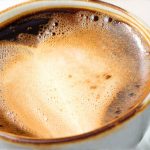For many men, particularly those striving for peak performance in creative or demanding fields, achieving a state of “flow” is paramount. This coveted mental space – characterized by deep focus, effortless concentration, and a sense of energized enjoyment – isn’t always easily accessed. A significant obstacle can be sensitivity to caffeine, where even small amounts disrupt cognitive function, induce anxiety, or lead to energy crashes that shatter the delicate balance needed for flow. The pervasive cultural reliance on coffee, tea, and energy drinks often leaves men feeling pressured to participate in a cycle that ultimately hinders their productivity and well-being. This article explores a diverse range of caffeine-free alternatives specifically tailored for those who recognize their sensitivity and seek sustainable ways to unlock their potential without the jitters or downsides.
Understanding your individual response to stimulants is crucial. Flow state isn’t about brute force, it’s about optimized mental clarity. Caffeine can initially provide a boost but often at the cost of long-term cognitive stability for sensitive individuals. This sensitivity isn’t weakness; it’s simply a neurological difference. Many men find that eliminating caffeine entirely or significantly reducing intake allows their nervous system to settle, leading to more consistent energy levels and improved focus – qualities essential for prolonged periods of deep work or creative endeavor. This article will guide you through delicious and effective alternatives designed to hydrate, nourish, and support your cognitive function without the pitfalls of caffeine dependence. Consider pairing these strategies with a healthy diet, like exploring top foods for natural prostate pressure relief to further enhance overall wellness.
Hydration & Herbal Infusions
Hydration is often overlooked but forms the foundation of any peak performance strategy. Dehydration significantly impairs cognitive function, making it harder to concentrate and think clearly. For flow-sensitive men, maintaining consistent hydration throughout the day isn’t just good health advice; it’s a prerequisite for entering that focused state. Water should be your primary drink, but diversifying with herbal infusions adds flavor, nutrients, and additional benefits without caffeine. Consider these options:
- Rooibos Tea: Naturally caffeine-free, rooibos boasts antioxidants and a mild, slightly sweet flavour. It’s a calming beverage that can reduce stress – a major flow state disruptor.
- Chamomile Tea: Known for its relaxing properties, chamomile can help quiet the mind and promote mental clarity, though it might be too sedating for some during peak work hours.
- Peppermint Tea: A refreshing and invigorating option that can improve alertness without stimulation. Peppermint is also known to aid digestion, preventing post-meal sluggishness.
- Ginger Tea: Warming and stimulating in a gentle way, ginger tea supports circulation and can alleviate nausea – helpful if caffeine withdrawal symptoms are present initially.
Beyond simply brewing these teas, explore blending them with other herbs or spices for customized flavour profiles. A touch of cinnamon, cardamom, or lemon can elevate the experience. Investing in quality loose-leaf teas offers a superior taste compared to tea bags and allows for greater control over the infusion process. Remember, consistency is key – aim for regular hydration throughout the day, not just when you feel thirsty. Staying adequately hydrated also supports overall urological health; review top beverages for daily urological support to learn more.
Functional Beverages & Adaptogens
The world of beverages has evolved beyond traditional options. A growing number of functional drinks are emerging that prioritize cognitive support without relying on caffeine. These often incorporate adaptogens – natural substances believed to help the body resist physical and mental stress. While research is ongoing, many men report positive benefits from incorporating adaptogens into their daily routine. Some excellent choices include:
- Mushroom “Coffee” Alternatives: Chaga, Lion’s Mane, Reishi, and Cordyceps mushrooms are increasingly popular for their nootropic properties. These drinks typically combine mushroom extracts with other beneficial ingredients like cacao or chicory root to mimic the flavour of coffee without the caffeine.
- Herbal Elixirs & Tonics: Formulated with adaptogens like ashwagandha, rhodiola rosea, and holy basil, these tonics are designed to support adrenal function, reduce stress hormones (cortisol), and enhance cognitive performance.
- Sparkling Water with Electrolytes: While not a direct caffeine replacement, adequate electrolyte balance is vital for optimal brain function. Adding electrolytes to sparkling water provides hydration and supports neurological health without any stimulants.
Be mindful of ingredient lists when choosing functional beverages. Avoid added sugars, artificial sweeteners, and unnecessary additives. Look for products that are transparent about their sourcing and manufacturing processes. Experiment with different options to find what works best for your body and preferences. Adapting your diet can further support your well-being; consider everyday eating for men with renal risk as a starting point.
Optimizing Your Hydration Routine
Maintaining consistent hydration requires more than just carrying a water bottle. It’s about building habits and integrating them into your daily workflow. Here’s how:
- Start the Day Right: Begin with a large glass of water (at least 16 ounces) immediately upon waking. This rehydrates your body after sleep and sets a positive tone for the day. Consider adding a slice of lemon or cucumber for flavour.
- Scheduled Reminders: Set alarms throughout the day to remind you to drink water. Many smartwatches and fitness trackers have built-in hydration reminders, or you can use apps designed specifically for this purpose.
- Associate with Activities: Link hydration to existing habits. For example, drink a glass of water before each meal, after checking emails, or during breaks in your work session.
Beyond the quantity of water, consider the temperature. Some individuals prefer cold water, while others find warm water more soothing and easier to drink consistently. Experiment to discover what works best for you. Also, be aware that certain foods contribute to hydration (e.g., fruits and vegetables with high water content), so factor those into your daily intake. For a comprehensive approach, explore hydration-aware meal design for men with flow issues.
Decoding Adaptogen Benefits & Potential Interactions
Adaptogens are powerful tools but require mindful consideration. It’s crucial to understand their individual properties and potential interactions:
- Ashwagandha: Known for reducing stress and anxiety, improving sleep quality, and supporting cognitive function. However, it can interact with certain medications (e.g., immunosuppressants) and may not be suitable for individuals with autoimmune conditions.
- Rhodiola Rosea: Enhances mental performance, reduces fatigue, and supports resilience to stress. It might cause insomnia in some individuals if taken too late in the day.
- Lion’s Mane Mushroom: Promotes nerve growth factor (NGF) production, potentially improving cognitive function and memory. It’s generally well-tolerated but may cause digestive upset in rare cases.
Always consult with a healthcare professional before starting any new supplement regimen, including adaptogens. Start with low doses and gradually increase as tolerated. Pay attention to how your body responds and adjust accordingly. Source high-quality adaptogen products from reputable brands that undergo third-party testing for purity and potency. Remember to also prioritize overall health, including regular checkups and a balanced diet; consider reviewing gentle protein sources for men with flow issues.
Transitioning Off Caffeine: A Gradual Approach
Abruptly stopping caffeine can lead to withdrawal symptoms like headaches, fatigue, and irritability. A gradual tapering approach is often more effective and sustainable:
- Reduce Gradually: Start by reducing your daily caffeine intake by 25-50%. Switch one cup of coffee with a herbal infusion or functional beverage.
- Substitute Strategically: Replace caffeinated beverages with alternatives that offer similar sensory experiences. For example, if you enjoy the ritual of making coffee, explore brewing rooibos tea instead.
- Manage Withdrawal Symptoms: If you experience withdrawal symptoms, stay hydrated, prioritize sleep, and engage in light exercise. Consider incorporating adaptogens like ashwagandha to help manage stress levels.
Be patient with yourself. The transition period may take several days or weeks. Focus on the long-term benefits of a caffeine-free lifestyle – improved energy levels, enhanced cognitive clarity, and greater emotional stability – to stay motivated. Remember that finding your flow state is about optimizing your internal environment, and sometimes, that means eliminating stimulants rather than relying on them.





















